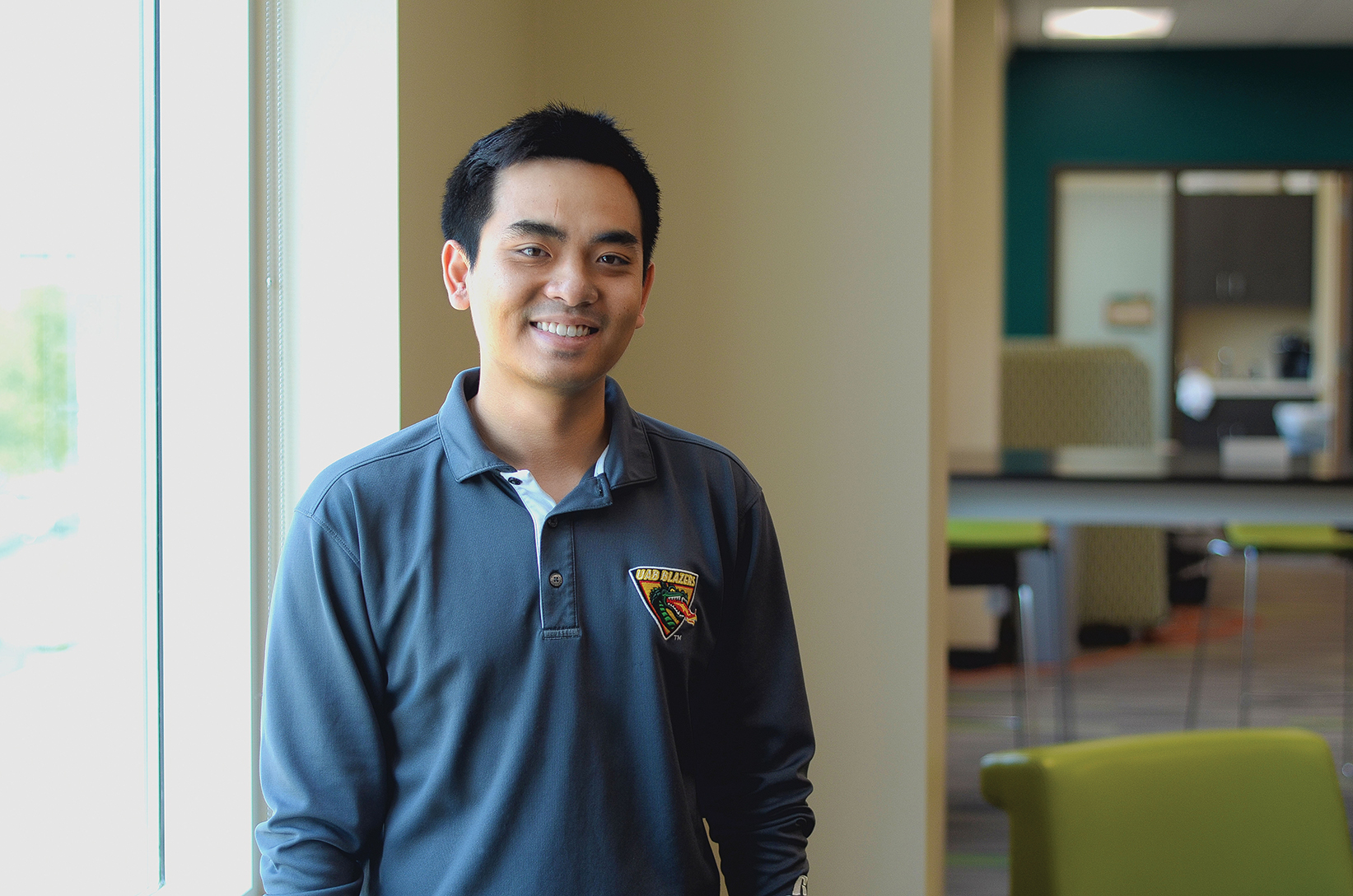
Quang Do currently works in the Hill Student Center as a coordinator of student leadership. Photo by Ian Keel
Shambi Anshumali – Contributor
shambi@uab.edu
UAB’s Quang Do, an alumnus and the current student leadership coordinator, was among 10 people selected from across the country as a finalist for the “White House Champions of Change for Asian-American and Pacific Islander Art and Storytelling.”
This event was hosted to honor artists and advocates that have used their channels and platforms to empower members of the Asian-American and Pacific Islander community. With AAPI being the fastest growing racial group in the U.S. according to the Pew Research Center, these individuals have played an important role in telling new stories, increasing awareness around key AAPI issues and encouraging diversity and inclusion in all sectors of society.
After graduating from UAB in 2012 with a degree in political science, Do became a full-time teaching and touring artist, where he traveled to various academic institutions and used his love of spoken word poetry to facilitate performance-based workshops.
“When developed as a platform for change, spoken word, like all art, can be used as a tool for transformation and to give people a voice to be heard in a world where words rule,” Do said. “As an AAPI community, we cannot underestimate spoken words’ power to move us, challenge others, create change, and connect us. We must be willing to bring up difficult conversations that often have complicated, difficult, and multilayered intersectional answers.”
With a drive to give a voice to the many Asian-Americans who don’t have one, Do continues to advocate issues within the AAPI community through diverse platforms, including those within UAB.
The AAPI community encompass nearly 6 percent of the undergraduate population, according to the UAB Fall 2015 demographics, as provided by the Office of Institutional Effectiveness and Analysis, Do said that recognition of these demographics encourages the UAB community to shed light on the various issues that college students encounter, such as health, economic and social disparities, language barriers, college access and the stigma around the “model minority” myth—the notion that AAPI students are more academically, economically and socially successful than other racial groups.
Even though these problems may exist, according to Do “UAB does a good job in pushing to have difficult, real conversations that encourage change within our community.” When the UAB community sees an issue, they not only seek to find a solution, but also push students to creatively offer their views.
A product of this push within UAB was the development of Do’s Poetic Justice event three years ago, hosted by UAB’s Student Activities Council and Multicultural Council.
“This program has a focus on helping students develop cultural, interpersonal and social understanding through the performance of spoken word poetry,” Do said. “Over the years, Poetic Justice has grown beyond my wildest dreams but the core idea has remained the same—change happens when we are willing to listen to each other.”
Within the UAB community, Do has been recognized by his colleagues for his work.
“Of course [I’m] so proud of him for being recognized and honored in that capacity,” said Jennifer Griffin, interim director of student involvement and leadership. “I know that this is a very big passion of his and he’s spent some time going around to local schools and sharing that passion with those communities and I think he was very honored and excited about being recognized and having the opportunity to go and do that, and I think not only represent himself but represent UAB and the work that he’s done. Quang has specifically kind of grown up at UAB […] And so I think it’s always cool to see someone pursue a passion like that, that was home grown here at within UAB.”
Kristin Bowen, the assistant director of fraternity and sorority life, who has worked with Do for around ten months, agreed with Griffin’s sentiments. In addition, according to Griffin, Do has expressed interest in working with the Multicultural Greek Council due to his “passion” and “specific tie” to that community.
“He’s done a wonderful job in terms of helping them understand what the definition of multiculturalism is, that identity within themselves,” Bowen said. “[Over the past nine or ten months,] it’s been really rewarding to see the students move forward.”
